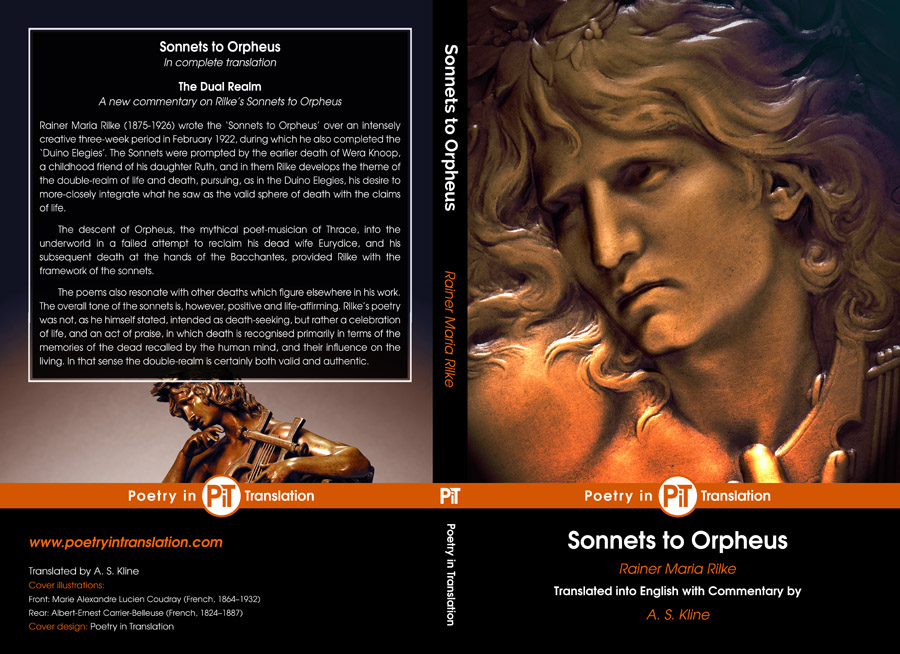News
Rilke: Sonnets to Orpheus, and The Dual Realm, a commentary
Following our translation of Rilke's Duino Elegies, and publication also of the associated line-by-line commentary entitled The Fountain of Joy, our latest online offering is a new complete translation of his Sonnets to Orpheus, which can be browsed and downloaded here, and a commentary on them entitled The Dual Realm, which can be found here. The Kindle and Printed editions are available here.
Rainer Maria Rilke (1875-1926) wrote the ‘Sonnets to Orpheus’ over an intensely creative three-week period in February 1922, during which he also completed the ‘Duino Elegies’. The Sonnets were prompted by the earlier death of Wera Knoop, a childhood friend of his daughter Ruth, and in them Rilke develops the theme of the double-realm of life and death, pursuing, as in the Duino Elegies, his desire to more-closely integrate what he saw as the valid sphere of death with the claims of life.
The descent of Orpheus, the mythical poet-musician of Thrace, into the underworld in a failed attempt to reclaim his dead wife Eurydice, and his subsequent death at the hands of the Bacchantes, provided Rilke with the framework of the sonnets. Elements of the Hellenistic Orphic rites of Dionysus may also have influenced Rilke’s thinking, in which adherents of the cult sought union with the divine in order to acquire mystic knowledge.
The poems also resonate with other deaths which figure elsewhere in his work. The overall tone of the sonnets is, however, positive and life-affirming. Rilke’s poetry was not, as he himself stated, intended as death-seeking, but rather a celebration of life, and an act of praise, in which death is recognised primarily in terms of the memories of the dead recalled by the human mind, and their influence on the living. In that sense the double-realm is certainly both valid and authentic.

Salvatore Quasimodo: Further Selected Poems
30 May 2023Goethe: Roman Elegies
10 May 2023Chaucer: Audiobook of the Canterbury Tales
10 May 2023Eustache Deschamps: Selected Poems
28 April 2023Renaud de Beaujeu: Le Bel Inconnu
18 April 2023
Jorge Luis Borges: Further Poems
17 July 2023Goethe: Iphigenia in Tauris
24 August 2023Garcilaso de la Vega: The Sonnets
4 September 2023Francisco de Quevedo: Selected Sonnets
27 October 2023News Update: December
18 December 2023
Want to comment on this post? Then cookies (Learn more).
JunMayAprMarFebJan20242023202220212020201920182017201620152014List all articles
Most Recent:
Théophile Gautier: Egypt
17 June 2025Théophile Gautier: Constantinople
12 June 2025Gérard de Nerval: Selected Poems
13 May 2025Gérard de Nerval: Sylvie
12 May 2025Gérard de Nerval: Voyage en Orient
22 April 2025